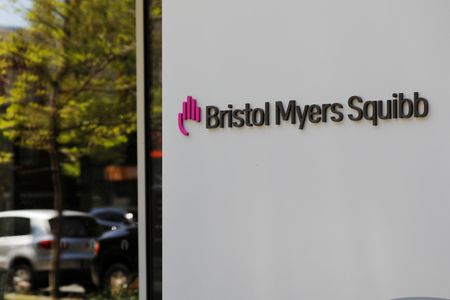(Reuters) – (This March 14 story has been corrected to say third approval for treatment, not second approval, in paragraph 1, and to say the initial approval was in February 2021, not June 2022, in paragraph 2. Both errors were there in a previous version of the story)
The U.S. Food and Drug Administration on Thursday expanded the use of Bristol Myers Squibb’s cell therapy, Breyanzi, for a type of slow-growing blood cancer, marking the third approval for the treatment.
Breyanzi was initially approved in the United States in February 2021 to treat a type of blood cancer known as large B-cell lymphoma in adult patients whose disease has returned or stopped responding to treatment.
With the FDA’s decision, the therapy is now approved to treat patients with chronic lymphocytic leukemia or small lymphocytic lymphoma.
The disease is characterized by increased production of abnormal white blood cells that have difficulty fighting infections. These faulty cells can be found in the bone marrow or lymph nodes.
The therapy brought in $364 million in revenue for Bristol in 2023.
Sales of Breyanzi are expected to reach $2 billion by 2030, according to LSEG estimates, helping it fill in some of the expected gap when top-sellers such as cancer drug Opdivo lose patent protection.
The wholesale list price of the therapy is $487,477, a company spokesperson said in an emailed statement.
Like other CAR-T therapies, Breyanzi comes with a serious warning about the risk of secondary malignancies, or cancers, in patients who use the drug.
The warning was added to the label information for similar therapies earlier this year after reports of T-cell cancers that occurred after treatment with CAR-T.
Breyanzi is also under review for use in patients with two other types of cancers that affect disease-fighting white blood cells, known as follicular lymphoma and mantle cell lymphoma.
A decision from the U.S. FDA is expected by May.
The current approval was based on an early-to-mid stage study in which the therapy showed a complete disappearance of tumors in 18.4% of patients of either refractory chronic lymphocytic leukemia or small lymphocytic lymphoma.
The rate of new cases for both cancers is 4.4% per 100,000 men and women in the United States per year, according to government data.
(Reporting by Bhanvi Satija, Puyaan Singh, Mrinmay Dey and Gursimran Kaur in Bengaluru; Editing by Shailesh Kuber, Mrigank Dhaniwala and Sherry Jacob-Phillips)











